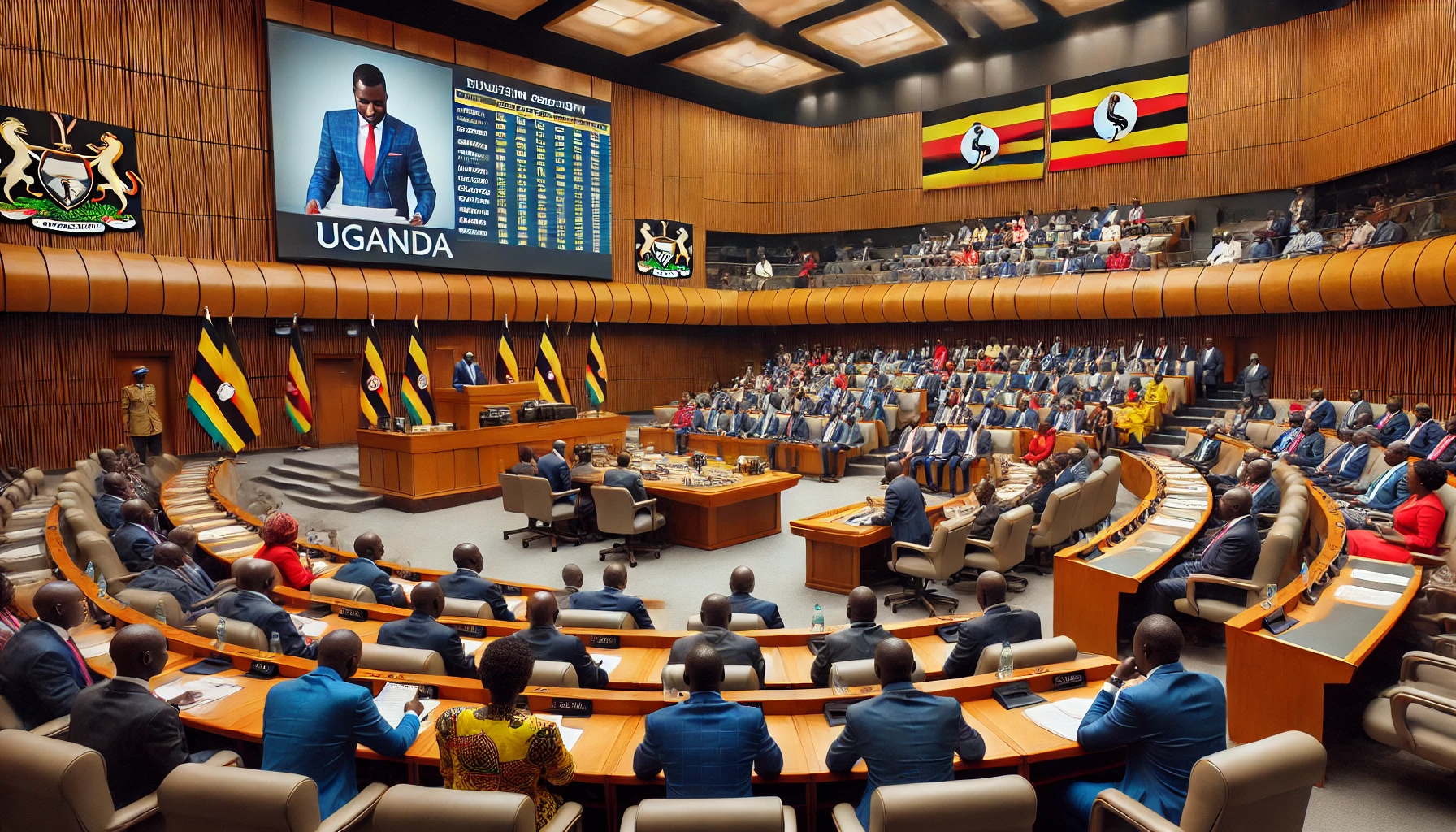Parliament Approves Shs1.2 Trillion Supplementary Budget to Facilitate Govt Agency Rationalisation
According to Hon. Musasizi, the Ministry of Works and Transport is the primary beneficiary, receiving Shs934 billion under development expenditure and over Shs246 billion under recurrent expenditure.

- Country:
- Uganda
Parliament has approved a supplementary budget totaling over Shs1.2 trillion for the financial year 2024/2025, aimed at facilitating the transfer of funds from rationalised government agencies to the respective receiving institutions. The Supplementary Expenditure Schedule No.2 was presented by the Minister of State for Finance, Planning, and Economic Development (General Duties), Hon. Henry Musasizi, during the parliamentary session on Thursday.
According to Hon. Musasizi, the Ministry of Works and Transport is the primary beneficiary, receiving Shs934 billion under development expenditure and over Shs246 billion under recurrent expenditure. "This funding is crucial for implementing the revised structure and operationalising the functions of the Uganda National Roads Authority (UNRA) and the Uganda Road Fund," Musasizi stated.
The Ministry of Agriculture, Animal Industry, and Fisheries will receive Shs32.7 billion for recurrent expenditure and Shs2.6 billion for development projects. The funds will support initiatives under the Dairy Development Agency, National Agricultural Advisory Services (NAADS), Cotton Development Organisation, and Uganda Coffee Development Authority.
Additionally, the Uganda Free Zones and Export Promotion Authority has been allocated Shs2.3 billion for development, Shs859 million for statutory obligations such as contract gratuity and National Social Security Fund (NSSF) contributions for staff, and Shs8.8 billion for recurrent expenditure.
Other beneficiaries include the National Planning Authority, the National Identification Registration Authority (NIRA), and the Ministry of Water and Environment, all receiving portions of the Shs1.2 trillion supplementary budget.
Funding Sources and Parliamentary Procedures
Hon. Musasizi clarified that the supplementary expenditure would be funded using unreleased resources that had been previously appropriated to rationalised votes.
To expedite the approval process, Parliament suspended Rule 153, which typically requires budget estimates to be reviewed by the Budget Committee. This motion was moved by the Government Chief Whip, Hon. Hamson Obua. "The Committee of this House has already considered a motion of reallocation. In my humble opinion, there is no need to undergo the due processes under Rule 153," Obua argued.
Opposition and Constitutional Concerns
However, the decision to suspend Rule 153 was met with opposition from some lawmakers. Hon. Jonathan Odur (UPC, Erute County South) criticized the suspension as unconstitutional. "Rule 153 operationalises Article 156 of the Constitution; by suspending this rule, the mover effectively suspends a constitutional provision," Odur contended.
Similarly, Hon. Denis Oguzi Lee (FDC, Maracha County) emphasized the constitutional requirements for approving budgets and supplementary expenditures. "We cannot rise above what the Constitution has dictated," he stated.
Deputy Speaker’s Guidance and Final Approval
Deputy Speaker Thomas Tayebwa defended the supplementary request, explaining that the funds were already available and that the approval was necessary to complete the rationalisation process of government agencies. "This is money we had already appropriated; the source is available. Indecision and delay on the part of the House do not help in terms of planning," Tayebwa remarked.
Parliament has recently passed several bills merging various government agencies in line with the government’s Rationalisation of Government Agencies and Public Expenditures (RAPEX) policy. The supplementary budget approval marks another step in streamlining government operations and enhancing fiscal efficiency.
- READ MORE ON:
- Parliament
- Henry Musasizi










